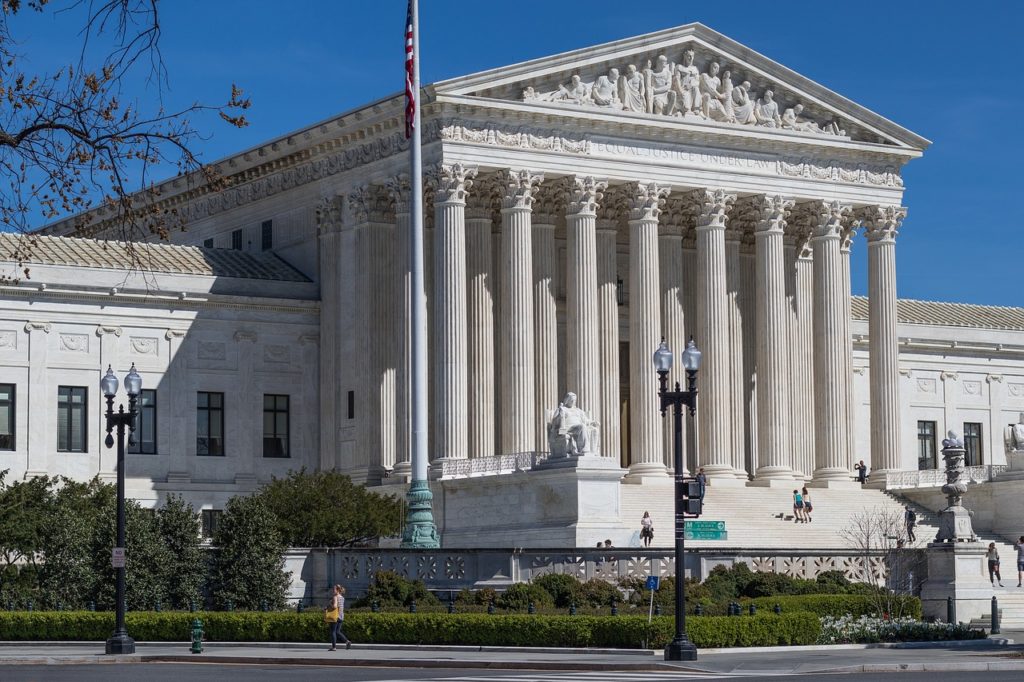I won’t belabor the Supreme Court cases I’ve been highlighting recently, but I will mention them; they show a new line of thinking about individual religious freedom that will have an ongoing impact in the courts for years to come.
There’s the case of the high school coach who led prayers at the 50 yard line after games. Rather than looking at whether a government action has the effect of supporting or endorsing religion as it has for decades, the Court said courts should interpret the First Amendment’s freedom from religion clause by referencing historical practices, focusing on “original meaning and history.” Under this historical-tradition analysis, the conservative majority concluded that the football coach’s prayer at the 50 yard line was not impermissibly coercive to students/team members. This decision will apply to other school employees, and eventually to cases involving other government employees.
The problem with the majority’s new emphasis on historical analysis of this — or any issue (most egregiously the decision overturning Roe v. Wade) — is that justices can cherry-pick from the historical record to show pretty much anything they want to and overturn inconvenient precedents. Observing precedents provided a stability to the law that supported respect for the Supreme Court. Today that respect is at an all time low.
The decision that allows taxpayer money to fund overtly religious schools in Maine was decided somewhat differently. Essentially the majority opinion says, “Take a look at our recent decisions on school funding; it’s obvious.” I’d say they phoned in this decision, but that might overestimate the difficulty in making a phone call.
One week after the Supreme Court’s June attack on the separation of religion and government comes this article. The short version: “Sitting Supreme Court justices have prayed together with evangelical leaders whose bosses were bringing cases and arguments before the high court.” Now, justices are going to pray; that may be unavoidable. What is avoidable is praying with any group that is going to have any business in front of the Court. (Here’s another version of the story if you can’t open the original.)
Either the justices don’t know better, or they don’t care, or they don’t think anyone will find out. This revelation comes after we learned that Justice Thomas’s wife actively supports the Big Lie, and he failed to recuse himself from a case involving the results of the presidential election. The Supreme Court has virtually no transparency about conflicts of interest and any decision to recuse from a case is entirely up to the justice with the conflict. However, there comes a big step in the right direction: The Supreme Court Ethics, Recusal, and Transparency Act.
SCERT would require justices to establish a code of conduct, disclose gifts, and set up a recusal process for cases involving any group that significantly supported a justice’s confirmation, or other cases with conflicts, among other important steps. Please go to our Action Alert and tell your representatives to support the Supreme Court Ethics, Recusal, and Transparency Act. This can only help restore confidence in the third branch of government.


